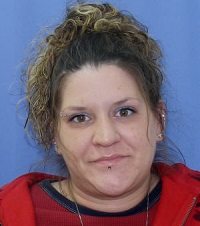Amid escalating political unrest in Venezuela, the White House on Monday sanctioned seven Venezuelans for human rights abuses and declared the conditions there to be a serious threat to the United States.
“The situation in Venezuela,” President Barack Obama wrote in his executive order, “constitutes an unusual and extraordinary threat to the national security and foreign policy of the United States.”
The order implements sanctions imposed by Congress and signed into law in December, freezing the U.S. assets of seven individuals involved in what the White House called an “erosion of human rights.” The administration also cited them for persecution of political dissent, limiting press freedoms, using violence and carrying out arbitrary arrests in response to anti-government protests, as well as corruption by senior government officials.
With more than 90% of Venezuela’s exports coming from oil revenue, the sharp drop in oil prices has caused a severe economic recession, further intensifying ongoing political instability and apparent corruption. The Obama administration decided to issue the executive order because it found there wasn’t sufficient progress in talks between South American foreign ministers and the Venezuelan government, who met over the weekend to discuss the strife between the Venezuelan government and its opposition.
The unrest in Venezuela began to escalate in February 2014, with nationwide protests calling for freedom of speech, better security and an end to goods shortages. The crisis continues over a year later.
During this period, tensions with the United States have also flared. President Nicolas Maduro announced on Feb. 28 that Venezuela will require visas from Americans intending to travel to the South American country, perhaps precipitating the White House decision.
Maduro also announced in the same speech last week that his government had captured an American pilot “of Latino origin with all kinds of documentation, and he’s making statements.”
In comments Monday, though, Obama administration officials focused on their allegations of abuses and corruption.
“Venezuelan officials past and present who violate the human rights of Venezuelan citizens and engage in acts of public corruption will not be welcome here, and we now have the tools to block their assets and their use of U.S. financial systems,” White House spokesman Josh Earnest said in a statement Monday.
He added, “We have consistently called on the Venezuelan government to release those it has unjustly jailed as well as to improve the climate of respect for human rights and fundamental freedoms, such as the freedoms of expression and peaceful assembly.”
The Venezuela Embassy declined to comment on the sanctions, deferring to the Ministry of Foreign Affairs. The ministry did not immediately offer a response to the White House announcement.
However, Diosdado Cabello, president of the Venezuelan National Assembly and a government loyalist, had strong words for the United States following Obama’s action.
“Does Venezuela represent a threat to the United States? By God! It’s them! They’re the ones who represent a threat not only to Venezuela, but the whole world,” Cabello said. “I hope that these are the last gasps of imperialism and that the world understands that the world’s empires should end.
Monday’s order freezes any U.S. property that the seven individuals have and prohibits Americans from doing business with them.
The list includes Katherine Nayarith Haringhton Padron, a prosecutor in Venezuela’s Public Ministry, who the White House said has charged opposition members with crimes based on “implausible — and in some cases fabricated — information.” Also included is the director-general of Venezuela’s Bolivarian National Intelligence Service, Gustavo Enrique Gonzalez Lopez, who the White House said has been responsible for or complicit in violence against anti-government protesters.
The White House was quick to point out Monday that these sanctions do not target the Venezuelan people or government, though a senior administrator warned that this was only a “first round” of actions.



